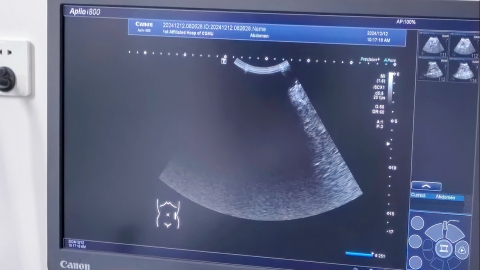What can be detected by ultrasound examination?
Ultrasound examinations can evaluate abdominal organs, superficial organs, the cardiovascular system, gynecological and obstetric conditions, as well as musculoskeletal tissues. They help detect abnormalities and assess organ function. If you experience physical discomfort and need to determine the underlying cause, follow your doctor's advice to choose an appropriate ultrasound examination and visit the relevant department accordingly.

1. Abdominal organs: The liver, gallbladder, pancreas, spleen, and kidneys can be examined to assess their size and morphology, and to screen for lesions such as stones, cysts, or tumors—including conditions like gallstones and liver cysts. Fasting is often required before the examination.
2. Superficial organs: Includes the thyroid gland, breasts, salivary glands, and lymph nodes. Ultrasound clearly visualizes organ structures and helps detect abnormalities such as nodules or masses—like thyroid nodules or breast lumps—supporting early screening and diagnosis of diseases.
3. Cardiovascular system: Evaluates the heart, neck vessels, and limb blood vessels to assess cardiac structure and function, and to identify issues such as vessel narrowing, plaques, or blood clots—including coronary artery disease and carotid artery plaques. Position adjustments may be required during the examination.
4. Gynecological and obstetric applications: Assesses the uterus, ovaries, and fetus to monitor reproductive health and fetal development, and to detect conditions such as uterine fibroids, ovarian cysts, or fetal abnormalities. Prenatal ultrasounds should be performed regularly according to gestational age.
5. Musculoskeletal tissues: Examines joints, muscles, and tendons to evaluate soft tissue injuries and detect conditions such as arthritis, tendonitis, or muscle tears—including knee injuries. Proper positioning is necessary during the examination depending on the area being scanned.
For daily care, follow your doctor’s instructions for preparation before an ultrasound—such as fasting or having a full bladder. If results are abnormal, seek timely medical attention. Maintain regular sleep patterns and a healthy diet, and undergo routine physical checkups using ultrasound to proactively monitor your health.







